

Assassin’s Creed 1 was a mediocre game with a great story and wonderful characters. Assassin’s Creed 2 was a great game with incredible scope, but simplistic gameplay. Assassin’s Creed: Brotherhood’s story is… well, I couldn’t tell you a damn thing about the story because I’ve spent every second of this title playing a deadly game of peekaboo.
While I mentioned previously that Assassin’s Creed: Brotherhood looked promising for those skilled in the arts of deception, I relied only on trailers, second-hand information, and my belief that Ubisoft wouldn’t betray my trust. After a few hours at the edge of my seat, squirming as my killer stood inches from me, or vice versa, I have to proclaim that Ubisoft’s multiplayer gamble has certainly paid off.

You have been contracted to kill: Red Bishop.
Although there are multiple game modes (roughly equivalent to deathmatch, team deathmatch, and hunted vs. hunters), I’ve so far only played Wanted, the default “deathmatch” paradigm. I use the term deathmatch loosely since, at any given time, you can only kill one person: your contracted “target.” Your goal is to assassinate this person (you’re given his/her name and an image of that player’s character) without alerting him/her to your presence. Of course, someone else in the game is gunning for you, so the more overt your hunting is, the more exposed you become to your own predators. And the better you’re doing, the more players are assigned to hunt you down. As you can imagine, this leads to a lot of soiled pants…
Killing your target nets you 100 points. So, if you’d like to run on the rooftops, leap over your victim, and fire a pistol into his face from point blank range, that’s certainly an option. But if you kill that player without making your self visible until the last second, you’ll get 300 points instead. If you stalk your target and take him out after following him silently for a while, you’ll earn even more points. In theory, you can earn 1200 points for pulling off a perfect kill: poisoning your target so he dies long after you trailed him across town. He never even knew you were there. Brotherhood rewards patience, style, and stealth.
Of course, there are tradeoffs. If you run around at full speed shooting guns at people, you’re more visible, making it easy for prey to hide from you and enemies to take you out. If you trail an enemy for a long time hoping for a lot of points, you might be killed yourself before the opportunity comes, or someone else may assassinate your contract. There is a lot of paranoia involved, as the closer you get to harvesting your victim’s spine, the more diligent you must be that your own reaper isn’t watching you, waiting for you to step out of the crowd and into his knife.
At first, it seems laughable that you’re given a compass that directs you to your target. At the bottom of the screen, a compass points in the general area of your contract. As you get closer to your victim, it gets less and less accurate, until it fills up, basically telling you he or she is withing a few meters. Considering you have a picture of the player, you’d imagine it would be as simple as walking up to that person and pressing X (all kills are instantaneous).
But nothing is that simple. Good players hide in small crowds of NPCs that look exactly like them. If your radar is going haywire and you see five courtesans that match your contract description, whom do you kill? Since killing an NPC causes you to lose your contract, randomly guessing is usually not worth the risk. If you make yourself too obvious, your target may realize you’re his/her assassin, giving that player the option of stunning you while you hesitate (also cancelling your contract and leaving you vulnerable on the floor). If you observe from a safe distance, you may get a clue as to the identity of your mark, but standing still for long periods of time means your assassin(s) can just as easily wait you out. Not so easy, is it?
Brotherhood gives each player a large number of skills, perks, and tools that can help root out the truth and incapacitate enemies. As with Call of Duty and Battlefield Bad Company, players unlike these benefits as they gain experience, and can then create custom loadouts for various scenarios. Do you arm yourself with a disguise kit that can buy you more time or trick your assassin into killing an NPC? Or do you equip throwing knives that can trip your prey if they make a run for it?

Not pictured: stealth, subtlety.
While every item and power has obvious benefits, each is also countered/cancelled by other tactics and strategies.
For instance, the hidden gun ability allows you to instantly kill your target (or the person you believe if your target) after a few seconds of charging and aiming. But using it leaves you vulnerable, and nothing says “I’m not an NPC” like a blatant “IMMA CHARGIN MAH LAZER!” animation. If you kill the wrong mark (or even if you succeed) everyone within a 50-foot radius will know who you are, where you are, and that you just put your special power on a 60-second cooldown.
I hope you’re good at running.
All of these considerations increase the tension and paranoia. Is that guy over there looking at me? Or is that just a computer AI? If you think you’ve been spotted, do you run for your life, making your identity obvious, or do you stand completely still and hope your prey’s own paranoia causes him or her to back off? There are so many meta-layers of deception, second-guessing, and risk-benefit analysis that every kill is a satisfying story, and every death is a painful, albeit educational experience.
Assassin’s Creed: Brotherhood succeeds at turning its “hiding in plain sight” mechanic into a thrilling, thinking man’s hunt. What are you waiting for? Purchase this game now. Just don’t be surprised when WiNGSPANTT is your first assassin.

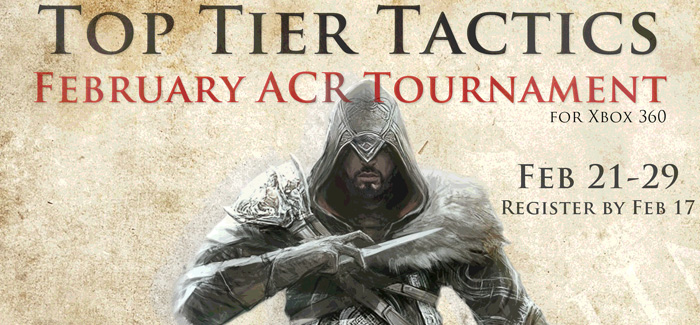
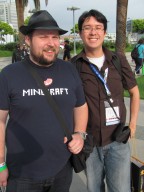

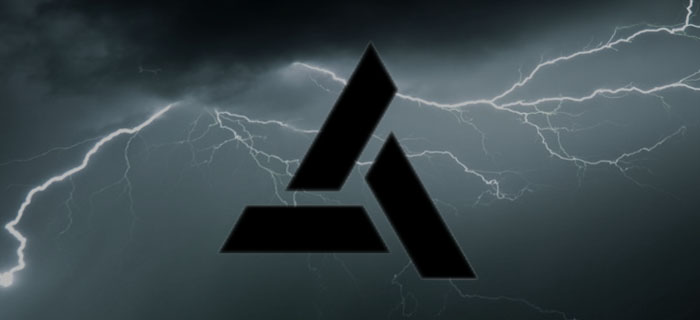 “Animus Hack” Assassin’s Creed 3 multiplayer rap video
“Animus Hack” Assassin’s Creed 3 multiplayer rap video We have a winner – Assassin’s Creed Brotherhood delivers backstabbing hilarity
We have a winner – Assassin’s Creed Brotherhood delivers backstabbing hilarity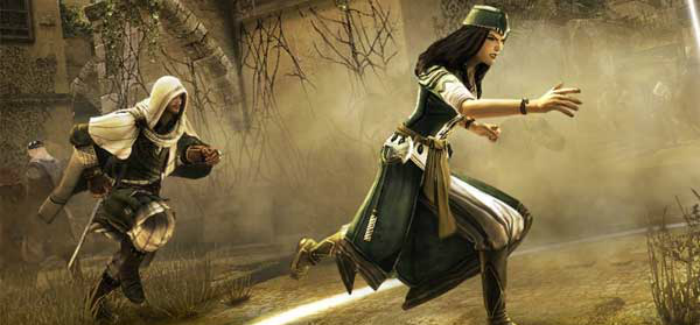 More bonus ACR: Deathmatch on Castel Gandolfo
More bonus ACR: Deathmatch on Castel Gandolfo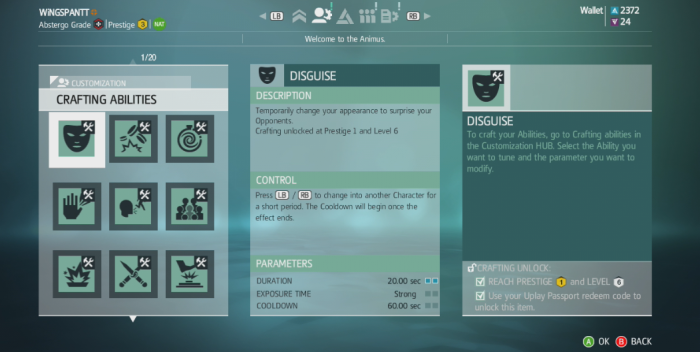 AC4 Black Flag multiplayer strategy #15: Abilities Guide (area of effect abilities)
AC4 Black Flag multiplayer strategy #15: Abilities Guide (area of effect abilities)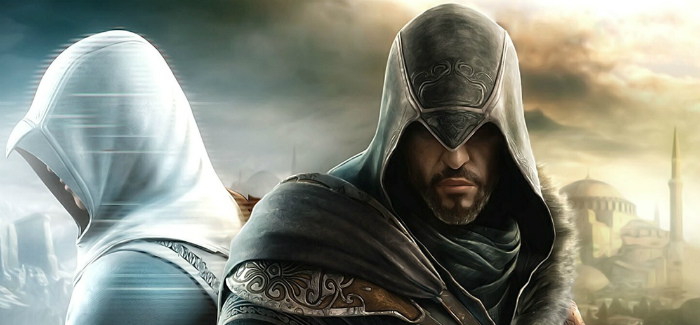 Tactical Thursday: Meet The Mighty Astlan
Tactical Thursday: Meet The Mighty Astlan